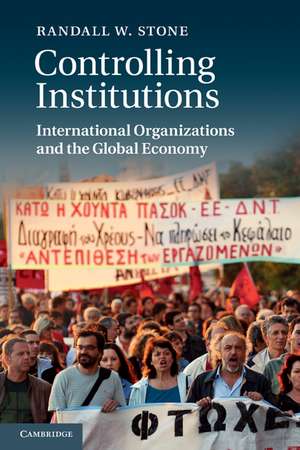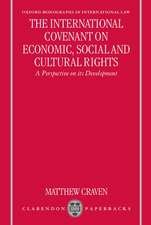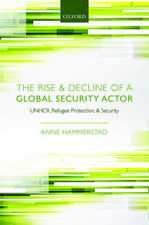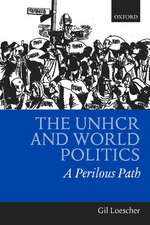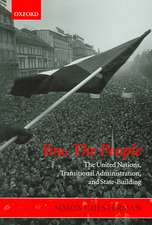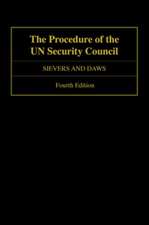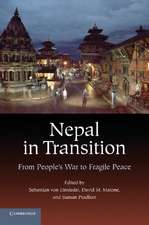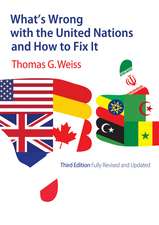Controlling Institutions: International Organizations and the Global Economy
Autor Randall W. Stoneen Limba Engleză Paperback – 2 mar 2011
| Toate formatele și edițiile | Preț | Express |
|---|---|---|
| Paperback (1) | 285.93 lei 6-8 săpt. | |
| Cambridge University Press – 2 mar 2011 | 285.93 lei 6-8 săpt. | |
| Hardback (1) | 738.38 lei 6-8 săpt. | |
| Cambridge University Press – 2 mar 2011 | 738.38 lei 6-8 săpt. |
Preț: 285.93 lei
Nou
Puncte Express: 429
Preț estimativ în valută:
54.72€ • 59.42$ • 45.96£
54.72€ • 59.42$ • 45.96£
Carte tipărită la comandă
Livrare economică 22 aprilie-06 mai
Preluare comenzi: 021 569.72.76
Specificații
ISBN-13: 9780521183062
ISBN-10: 0521183065
Pagini: 274
Ilustrații: 8 b/w illus. 28 tables
Dimensiuni: 150 x 221 x 15 mm
Greutate: 0.41 kg
Editura: Cambridge University Press
Colecția Cambridge University Press
Locul publicării:Cambridge, United Kingdom
ISBN-10: 0521183065
Pagini: 274
Ilustrații: 8 b/w illus. 28 tables
Dimensiuni: 150 x 221 x 15 mm
Greutate: 0.41 kg
Editura: Cambridge University Press
Colecția Cambridge University Press
Locul publicării:Cambridge, United Kingdom
Cuprins
1. Introduction: international organization and US power; Part I. Theory: 2. A theory of international organization; 3. A model of informal governance; Part II. Cases: 4. Informal governance in the IMF; 5. The World Trade Organization; 6. The European Union; Part III. Hypotheses: 7. Access to IMF resources; 8. Conditionality under IMF programs; 9. Enforcement; 10. Conclusions.
Recenzii
'Controlling Institutions develops an original and persuasive theory about informal governance and power in world politics. Anyone who wants to understand how international organizations really operate should read this book.' Robert O. Keohane, Princeton University
'The United States has long exercised disproportionate power within key international institutions. In this rigorous and compelling account, Randall Stone explains, for the first time, the sources of America's informal influence over global governance.' Miles Kahler, Rohr Professor of Pacific International Relations, University of California, San Diego
'Cogently combining innovative theory, statistical analysis, and case studies, Stone pries open the black box of how the United States has gained so much influence over the behavior of international organizations such as the IMF.' Thomas D. Willett, Horton Professor of Economics at The Claremont Colleges
'The United States has long exercised disproportionate power within key international institutions. In this rigorous and compelling account, Randall Stone explains, for the first time, the sources of America's informal influence over global governance.' Miles Kahler, Rohr Professor of Pacific International Relations, University of California, San Diego
'Cogently combining innovative theory, statistical analysis, and case studies, Stone pries open the black box of how the United States has gained so much influence over the behavior of international organizations such as the IMF.' Thomas D. Willett, Horton Professor of Economics at The Claremont Colleges
Notă biografică
Descriere
This book argues that informal state power explains the institutional design, performance shortcomings and legitimacy problems in international organizations.
